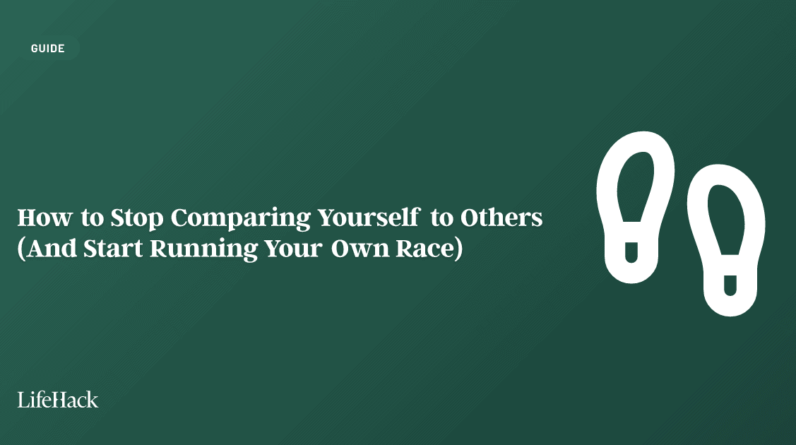
Nearly one in seven American women reach their early fifties without having children—a statistic that reflects not failure or circumstance, but an increasingly deliberate choice.
I have many friends who have chosen this path. And even being 35 and not having children becomes a question in many conversations I have with others.
If you’ve chosen or are considering a child-free life, you’re part of a growing demographic that’s reshaping what adulthood and fulfillment look like.
But even as the numbers grow, many who choose this path still face judgment or internalized guilt (yup, I can relate!).
Family members express disappointment.
Friends drift toward parent-centric social circles.
Workplace cultures assume childless employees have infinite availability.
Perhaps most challenging of all, voices of cultural conditioning echo internally, whispering that something must be wrong with you for wanting a different path. So, where does this shame come from and how can we break free from it?
Where Does This Shame Come From?
Society often equates womanhood with motherhood and maturity with parenthood. Media portrayals, family traditions, and some cultural messages reinforce that “real fulfillment” means raising children.
These messages start early—think of childhood games centered on dolls and playing house—and intensify through adulthood as peers begin having babies and family gatherings become interrogations about your reproductive timeline.
If you’ve chosen a different path, you might feel like you’re letting someone down, particularly parents who dreamed of grandchildren or partners who assumed you’d eventually come around.
Perhaps most insidious is the guilt for wanting freedom, travel, creativity, or calm rather than the caretaking role society prescribes as noble and natural.
Yet for many, choosing to live child-free is a values-aligned decision, not a rejection of responsibility.
In many ways, it’s saying yes to a different form of nurturing—your community, partner, craft, or causes. You’re not shirking duty; you’re embracing a life structure that allows you to contribute in ways that feel authentic and sustainable for who you actually are, not who others expect you to be.
Take a moment for this reflection: “If I remove the voice of expectation—family, culture, social media—what do I actually want my life to feel like day to day?”
This can offer insight into what you truly want, and not just what society has conditioned you to expect.
How to Handle Those Tough Conversations & Create Boundaries
While it will take practice handling those conversations and addressing your own feelings around them, here are a few starting points to help you out.
Build Confidence Through Strategic Boundaries
Building confidence in your child-free choice begins with strategic boundary-setting.
So, start by defining your disclosure levels.
Decide early:
- who gets full honesty—your closest circle who’ve earned vulnerability
- who gets a simple boundary (“We’re not planning for kids”)
- who gets privacy (“I prefer not to discuss family planning”)
This tiered approach protects your energy while maintaining relationships at appropriate depths.
Related Article: 5 Important Ways You Can Set Healthy Boundaries with Others & Stick to Them
Keep Default Lines Ready
Have one practiced response for each situation.
- Curious acquaintance: “It’s not part of our plan, but I appreciate your interest.”
- Family pressure: “I know you care—please trust that we’ve made the right choice for us.”
- Workplace assumptions: “My schedule’s set like everyone else’s—I’ll contribute during my hours.”
These calm, confident and consistent replies close the loop before conversations spiral into debate or leave you questioning everything you’ve already made up your mind about.
Handle the “You’ll Regret It” Moment
This comment often arrives wrapped in false concern. Use this three-step response:
- Acknowledge: “I understand that’s how you feel.”
- Anchor: “I’ve thought about this a lot.”
- Redirect: “Let’s talk about something we both enjoy.”
This method respects their perspective without surrendering your peace or inviting further argument. Remember, it’s okay to have boundaries!
Revisit the 3-V Framework With Your Partner
If you share your life with a partner, schedule periodic check-ins using the 3-V framework—Values, Vision, and Viability.
Discuss whether your values still align, whether your vision of daily life remains compatible, and whether the practical viability of your decision still feels right.
Revisiting these conversations annually keeps assumptions and resentment from building, and ensures you’re on the same page regarding family planning (or not).
Curate Your Mental Environment
Be intentional about the influences you allow in.
This may mean following communities and creators who normalize child-free fulfillment—spaces that highlight a different purpose, creativity, travel, and chosen families. As such, you may want to go ahead and mute or unfollow content that triggers comparison or guilt.
Your mental environment shapes your internal narrative, so design it deliberately to support confidence and your goals!
Replace Guilt With Groundedness
Releasing shame begins with reframing your story.
Ask yourself: “What am I giving more room to by choosing this path?”
Maybe it’s uninterrupted creative work, spontaneous adventures, deep friendships, or caring for aging parents. A child-free life isn’t about lack—it’s about making space for other forms of abundance! And that’s completely okay.
Practice Self-Compassion
Self-compassion means meeting moments of doubt with understanding instead of criticism.
When feelings of shame arise—perhaps after a pregnancy announcement, a family gathering, or a casual comment—pause and remind yourself that choosing differently doesn’t make you wrong. It’s a conscious decision to live in alignment with who you truly are.
So, treat yourself with the same empathy you’d offer a friend who made a brave, unconventional choice. This isn’t selfish but a sign of real self-respect.
Related Article: The Self-Determination Theory: Can It Help Improve Your Life?
Redefine What Fulfillment Looks Like
Meaning exists abundantly outside parenthood.
Fulfillment can flow through mentorship, friendship, creative expression, activism, animal care, or community leadership. These are all forms of generative living and ways of nurturing life and contributing to the future in your own way.
Remember the Core Truth
At the end of the day, your worth isn’t conditional on reproduction.
You are complete and contributing to the world exactly as you are. Every time you live your child-free life with joy and purpose, you help normalize this freedom for others. The shame you may feel isn’t yours to carry; it belongs to an outdated script that no longer fits our evolving world.
Letting Go Starts Today
Living child-free by choice takes courage in a culture still centered on nuclear families. Yet as the numbers show, you’re far from alone.
You’re part of a generational shift toward intentional living—designing life around values, not inherited expectations. Let go of the guilt, honor your truth, and step forward into the life you’re actively choosing—rich with your own forms of love and legacy!
There’s no “one” path that life has to follow so don’t feel you need to do so due to external forces that don’t sit right.
Read Next: Are Your Regrets Keeping You From Living Life Fully? How to Let Go







